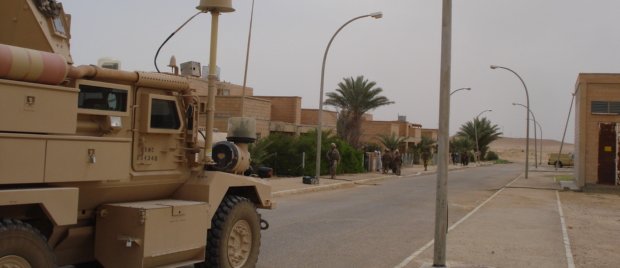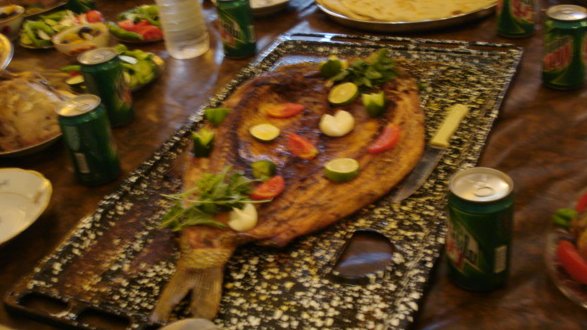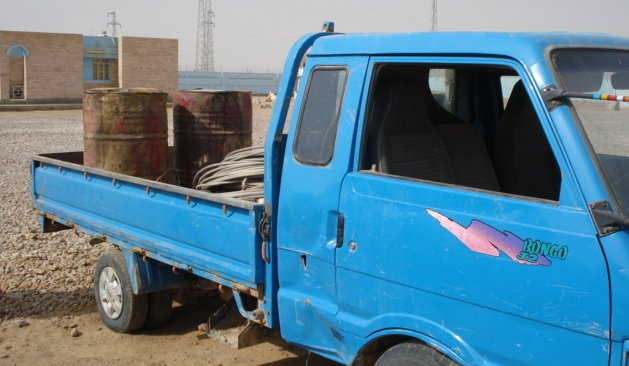I talked to three of the toughest men I have ever met during separate meetings this week. Each had fought the insurgents in his own way, taking great personal risks and having the wounds and lost family to show for it. And each is trying to integrate into the new Iraq in his own way.

One told us that he sees the future of Iraq as a country that integrates all sorts of Iraqis, regardless of ethnicity or tribe. The Iraqi nation should stand over all. He reminded us that he spoke also as a tribal leader when he said that the rule of law must come above the power of tradition and tribe. The commitment, energy and bravery of the tribal sheiks was essential to staunching the violence in Western Anbar and they could still play an important role in the future, but that role should be based on their merit and abilities, not their power over tribal members.
Below is a Euphrates River fish served during one of our meetings. It is a carp, but tastes okay.

We talked a little about why the tribes had been so important and agreed that in times of trouble people turn to more basic institutions such as religion and family. The tribes were a place where people could better trust loyalties. As the security and prosperity of Iraq returns, people will have other places to turn and there will be a natural turning to the institutions of civil society. At least that is the hope. The chief might be interested in running for political office himself, although he did not say so to us.A senior police officer also told his compelling personal story. He was a cop before the war and found himself out of a job after the fall of Saddam. He says that he went into the vegetable business, i.e. growing and selling tomatoes, cucumbers and melons. It fed his family and kept him out of trouble.
He stayed out of the security game until AQI insurgents tortured and murdered his little brother. He seemed compelled to explain in detail, which I won’t repeat. After that he and his cousins started to “disrupt” the insurgents during nighttime raids. They would also report insurgent positions to Coalition Forces, enabling them to deal with forces too powerful for the family group to handle. As the IP became better organized, he returned to service and has been there ever since. His aspiration in life is to do what he is doing: working as an honest cop. It is not easy, he says. He has lots of offers of money, but he is working hard to build a professional force. Our surprise visit to his IP installation seemed to confirm that. They had just run down some oil smugglers and morale was high. In some ways, this guy stands our like Eliot Ness in prohibition era Chicago. There are lots of bad guys still around, but he is making a difference. Below is one of the smuggler’s trucks. They call them Bongo trucks. I don’t know why.

Our third friend made his name by telling it to all the terrorists. He literally posted his name and where he lived and challenged the insurgents to come and get him. They tried. He is still standing; those who tried to take him down are not. Someday they will make a movie about it. His dilemma is one of how does a warrior integrate into a peaceful society when things settle down?
The stories these three men tell point to the general challenge in Western Anbar. Stability has come quicker than many people thought possible. Some arrangements made during the dark and deadly times are not appropriate for the new day that is dawning across the province. The old saying that yesterday’s solutions are today’s problems is applicable here. And it is not limited to the questions of war and peace. Everybody has to adapt to the new situation.
